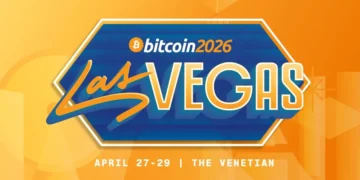Imagine stepping into a luxurious casino, hearing the familiar sounds of slot machines paying out, watching dealers shuffle cards, and chatting with other players at your table—all without leaving your home. This isn’t a scene from a science fiction movie; it’s the exciting reality of VR casinos that are revolutionizing online gambling. The power of virtual reality technology is transforming online casinos into immersive, interactive experiences that are the next best thing to being there in person .
The global virtual reality in gaming market was valued at $19.24 billion in 2024 and is expected to grow exponentially to $71.79 billion by 2029, representing a compound annual growth rate of 31.1% . This staggering growth reflects how quickly players are embracing this new form of entertainment. But what does this mean for you as a gambler? How does VR gambling differ from traditional online casinos, and is it worth exploring?
In this comprehensive guide, we’ll dive deep into everything you need to know about VR casinos—from the technology that powers them to the incredible experiences they offer. Whether you’re a seasoned gambler curious about this new frontier or completely new to the world of virtual reality, you’ll discover how VR technology is reshaping gambling and what it means for the future of the industry. Have you ever wondered what it would be like to experience the thrill of a Las Vegas casino from your living room? Let’s find out together.
How VR Casino Technology Works: The Science Behind the Experience
The Hardware: Your Gateway to Virtual Gambling
At the heart of every VR casino experience is the hardware that transports you to another world. The primary components include:
VR headsets like Oculus Rift, HTC Vive, and PlayStation VR that use high-resolution displays positioned close to your eyes, creating a wide field of view that fills your peripheral vision .
Motion controllers that allow for natural interactions within the virtual space, enabling you to pull slot machine levers, place chips on tables, and handle cards .
Haptic feedback devices that provide tactile sensations, making you feel the vibration of a winning slot machine or the weight of virtual poker chips .
Spatial audio systems that create realistic 3D soundscapes where noises change as you move your head, accurately simulating how sound behaves in physical spaces .
This sophisticated technology works together to create what experts call “presence”—the convincing feeling that you’re actually inside the virtual environment rather than just observing it . This immersive experience is what sets VR casinos apart from traditional online gambling platforms.
The Psychology of Immersion: Why VR Feels So Real
The immersive nature of VR casinos goes beyond technical specifications; it taps into fundamental aspects of human psychology to create deeply engaging experiences. Here’s how:
Sensory isolation: VR headsets block out the real world, minimizing distractions and allowing you to focus completely on the game .
Cognitive absorption: The rich, interactive environments can lead to a state of flow where players become fully engrossed in the experience .
Emotional response: Feeling present in a virtual space can trigger genuine emotional reactions, amplifying the excitement of winning .
Social presence: The ability to see and interact with other players through avatars creates authentic social dynamics that mirror physical casinos .
Studies have shown that VR gambling experiences can increase player satisfaction and engagement by up to 40% compared to traditional online platforms . But have you considered how this heightened immersion might affect your gambling habits?
Popular VR Casino Games and Platforms
Leading VR Casino Games
VR casino games have evolved significantly from basic simulations to sophisticated experiences that rival their real-world counterparts. Some of the most popular titles include:
PokerStars VR: This groundbreaking game offers an authentic poker environment that combines the excitement of live poker with the convenience of online play. Players can interact with others at the table through voice chat and even throw virtual objects for fun . The ability to read opponents’ virtual body language adds a new layer of strategy that’s impossible in traditional online poker.
SlotsMillion VR: Featuring over 40 individual slot machines with unique themes, this platform takes players to a virtual casino room situated on the 80th floor of a high-rise overlooking a futuristic city. The attention to detail is extraordinary—players can even lean against the window and look down at the city below when taking a break from playing .
Casino VR Poker: Developed in Switzerland, this platform features highly detailed interfaces with realistic full-body avatars. The casino includes six Texas Hold’em poker tables and spatial voice chatting, creating an incredibly social experience .
Blackjack VR: These simulations offer incredibly realistic graphics and intuitive controls, allowing players to hit, stand, and double down as if they were sitting at an actual table. The social aspect is particularly engaging, with opportunities to interact with other players and even observe their strategies .
Major VR Casino Platforms
As the VR casino industry continues to expand, several platforms have emerged as leaders in the space:
SlotsMillion: Currently representing VR casino innovation at its best, this platform offers a stunning virtual environment exclusively focused on slot machines. For players in jurisdictions where it’s legal, SlotsMillion offers real money gambling with 24/7 customer support .
Viveport VR Casino: Designed specifically for HTC Vive users, this platform provides a comprehensive casino simulation with realistic graphics and interactive feedback. Regular updates and new game releases keep the experience fresh and exciting for returning players .
Oculus Casino Apps: Available through the Oculus store, these applications offer a variety of casino games, including slots, poker, blackjack, and roulette, all set within immersive virtual environments. The social components, such as voice chat in multiplayer modes, significantly enhance the experience .
The Outlook for VR Gaming in 2025 and Beyond
Market Growth and Adoption Trends
The future of VR casinos looks incredibly promising, with several key trends shaping their development:
The number of active VR users worldwide is expected to reach 216 million by the end of 2025, a staggering increase from 171 million users in 2024 . This growing user base creates a larger audience for VR gambling platforms.
About 69% of healthcare decision-makers are planning to invest in VR for patient treatment and staff training , indicating broader acceptance of VR technology across industries.
The enterprise sector has also embraced VR technology, with businesses leveraging it for remote collaboration, product design, and customer engagement. A recent survey revealed that over 75% of Fortune 500 companies have implemented VR in their operations .
Technological Advancements on the Horizon
Several exciting technological developments are poised to make VR casino experiences even more compelling:
5G cloud integration: The combination of cloud gaming, virtual reality, and 5G connectivity is set to reduce latency and increase bandwidth, making VR experiences smoother and more accessible .
Haptic feedback advancements: Beyond controllers, we’re seeing development of haptic gloves and even full-body suits that allow users to feel touch, pressure, and movement within virtual environments .
Mixed reality integration: The convergence of AR and VR technologies creates mixed reality experiences that blend digital elements with the physical world, potentially allowing players to see their actual hands while manipulating virtual cards or chips .
AI integration: Artificial intelligence is being used to generate procedural environments, create intelligent non-player characters, and even design entire worlds autonomously .
The Benefits and Advantages of VR Casinos
Unparalleled Immersive Experiences
The primary advantage of VR casinos is their ability to create immersive gambling experiences that traditional online platforms cannot match. Consider these benefits:
Realistic environments: VR technology recreates the audio, lighting, and visual effects of physical casinos, from the clink of chips to the ambient noise of other players . This attention to sensory detail creates an atmosphere that standard online casinos can’t replicate.
Physical interactions: Instead of clicking buttons, players in VR casinos can perform physical actions like pulling slot machine levers, placing chips on betting areas, and handling cards . This physical dimension adds authenticity to the experience.
Spatial awareness: With 360-degree views and head tracking, players can look around naturally, observe other tables, and even turn to see who’s approaching behind them . This freedom of movement enhances the feeling of presence in a real casino.
Enhanced Social Interactions
One of the most common complaints about traditional online casinos is their lack of social elements. VR casinos address this limitation in several ways:
Real-time avatar-based interaction: Players can see and communicate with each other through customizable avatars, complete with natural gestures and body language .
Voice chat: Spatial voice chatting allows for natural conversations that change based on your position relative to other players, just like in real life .
Shared experiences: From celebrating wins together to commiserating over losses, the social dynamics in VR casinos closely mirror those of physical gambling establishments .
Customization and Personalization
VR casino platforms offer unprecedented levels of customization that enhance player satisfaction:
Avatar customization: Players can create digital representations of themselves that reflect their personal style, helping them feel more connected to the virtual world .
Personal spaces: Some VR casinos offer VIP rooms or private areas that players can access based on their performance or status, creating a sense of achievement and exclusivity .
Game variety: The virtual nature of these environments means developers aren’t limited by physical constraints, allowing for creative game variants that would be impossible in traditional casinos .
Challenges and Limitations of VR Casinos
Cost and Accessibility Barriers
Despite their impressive capabilities, VR casinos still face several significant challenges:
High entry cost: Quality VR equipment represents a substantial investment. High-end headsets like the HTC Vive Pro 2 cost nearly $800, and that’s before considering the powerful gaming PC often required to run them . This financial barrier limits access for many potential users.
Technical complexity: Setting up and maintaining VR systems is more involved than traditional online gambling platforms, requiring space for room-scale experiences and troubleshooting technical issues .
Limited accessibility: Current technology limitations make VR casinos less accessible to people with certain disabilities, motion sensitivity, or other health concerns that might be exacerbated by immersive experiences .
Technical and Physical Limitations
Beyond cost, several technical and physical factors may impact the VR casino experience:
Motion sickness: Some users experience dizziness, nausea, or discomfort in VR environments, particularly during extended play sessions . While developers are continuously working to minimize these effects through better hardware and software design, it remains a concern for a segment of the population.
Hardware limitations: Even high-end VR systems have limitations in display resolution, field of view, and tracking accuracy that can occasionally break the sense of immersion . Though these issues are diminishing with each new generation of hardware, they haven’t been completely eliminated.
Internet requirements: High-quality VR experiences typically require robust internet connections, which may not be available in all areas, potentially limiting accessibility for some players .
Regulatory and Security Concerns
The novel nature of VR gambling presents unique regulatory challenges:
Age verification: Ensuring that players meet legal gambling age requirements is more complex in virtual environments where users can create and customize avatars .
Jurisdictional issues: The global nature of online gambling combined with the emerging technology of VR creates complex legal questions about which jurisdictions apply to virtual casino operations .
Data privacy: VR systems collect extensive data about user movements, interactions, and behaviors, raising important questions about privacy and data protection .
Getting Started with VR Casinos: A Practical Guide
Essential Equipment for VR Gambling
If you’re ready to explore VR casinos, here’s what you’ll need to get started:
VR headset: Popular options include the Oculus Quest series (which functions as a standalone device), PlayStation VR (for console gamers), and PC-connected headsets like the Valve Index or HTC Vive .
Gaming computer (for PC VR): If you choose a PC-connected headset, you’ll need a computer with sufficient processing power, graphics capabilities, and RAM to run VR experiences smoothly.
Internet connection: A stable, high-speed internet connection is crucial for seamless multiplayer interactions and downloading games and updates.
Play space: While some VR experiences can be enjoyed while seated, others benefit from room-scale setups that allow you to move around more freely.
Choosing the Right VR Casino Platform
With several VR casino options available, consider these factors when selecting where to play:
Game selection: Different platforms specialize in various games—some focus on poker, while others emphasize slots or table games. Choose one that offers your preferred games .
Monetary options: Determine whether you’re interested in playing for real money or prefer social casino experiences where you can play with virtual currency .
Social features: If interacting with other players is important to you, look for platforms with robust social features like voice chat, avatar customization, and gesture systems .
Compatibility: Ensure the platform you choose is compatible with your specific VR hardware, as not all games support all headsets .
Tips for Your First VR Casino Experience
To make your initial VR gambling session enjoyable and comfortable:
Start slowly: Begin with shorter sessions to acclimate to the VR environment and gradually increase your play time as you become more comfortable.
Use comfort settings: Most VR games include comfort options designed to reduce motion sickness—don’t hesitate to use them, especially when starting out.
Stay hydrated: It’s easy to lose track of time in immersive VR experiences, so keep water nearby and take regular breaks.
Set limits: The engaging nature of VR gambling makes it especially important to set time and money limits before you start playing.
Conclusion: The Future of Gambling Is Virtual
VR casinos represent a fascinating convergence of cutting-edge technology and timeless entertainment. By leveraging advanced VR systems, these platforms create deeply immersive gambling experiences that engage players on multiple sensory and cognitive levels. From stunning visual environments to realistic game mechanics and social interactions, VR casinos offer a compelling glimpse into the future of digital gambling.
As the technology continues to evolve, we can expect even more innovative and engaging VR casino experiences. However, it’s crucial that this progress is balanced with a commitment to responsible gambling practices and player well-being. The potential of VR casinos is enormous, but it must be realized in a way that prioritizes safety, fairness, and ethical considerations.
The global virtual reality in gaming market is projected to reach $71.79 billion by 2029 , and VR casinos will undoubtedly claim a significant portion of this growth. For those intrigued by the possibilities of VR gambling, now is an exciting time to explore this emerging field. Whether you’re a tech enthusiast, a gambling aficionado, or simply curious about the future of digital entertainment, virtual reality casinos offer a unique and captivating experience that pushes the boundaries of what’s possible in the world of online gambling.
Have you tried a VR casino yet? What aspect of the experience are you most excited about? Share your thoughts and questions in the comments below—we’d love to hear from you!
Frequently Asked Questions About VR Casinos
What is a VR casino?
A VR casino is a virtual reality gambling platform that uses VR technology to create immersive, three-dimensional casino environments. Unlike traditional online casinos that rely on 2D interfaces, VR casinos transport players into digitally rendered casino spaces where they can interact with games and other players using motion controllers and VR headsets. These platforms aim to replicate the experience of physical casinos by incorporating realistic visuals, spatial audio, and social interactions through avatar-based systems .
What is the outlook for VR gaming in 2025?
The outlook for VR gaming in 2025 is exceptionally strong, with several key developments shaping the industry:
The number of active VR users worldwide is expected to reach 216 million by the end of 2025 .
The global virtual reality in gaming market is projected to grow from $19.24 billion in 2024 to $24.33 billion in 2025, representing a compound annual growth rate of 26.5% .
Major trends include more affordable hardware, multi-sensory technology, ultra-realistic graphics, and increased integration of artificial intelligence .
5G cloud integration is making VR gaming more accessible by reducing latency and hardware requirements .
What game do you have the highest chance of winning the most money in a casino?
While specific return-to-player (RTP) percentages vary across games and platforms, generally, blackjack and video poker traditionally offer some of the best odds in physical casinos when played with optimal strategy. In VR casinos, these games maintain their fundamental mathematics, but players should always check the specific rules and paytables of each virtual table. It’s worth noting that VR casinos may offer unique variations of traditional games with different odds, so understanding the specific rules of each game is essential for maximizing your winning potential .
How has VR affected the gaming industry?
VR technology has profoundly impacted the gaming industry in several key ways:
It has introduced unprecedented levels of immersion, allowing players to feel present in game worlds rather than just observing them through a screen .
VR gaming has created entirely new genres and experiences that wouldn’t be possible with traditional interfaces, including fully immersive casino environments .
It has transformed social gaming by enabling more natural interactions through avatars, gestures, and spatial audio .
The technology has driven hardware innovation, leading to developments in motion tracking, haptic feedback, and display technology .
VR gaming has expanded the audience for interactive entertainment, attracting both traditional gamers and new users drawn to immersive experiences .





































